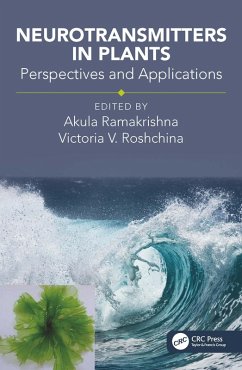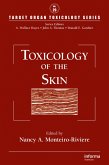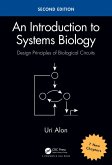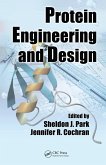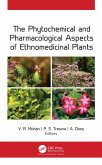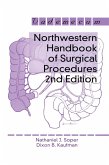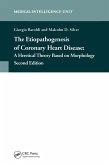Neurotransmitters in Plants (eBook, PDF)
Perspectives and Applications
Redaktion: Ramakrishna, Akula; Roshchina, Victoria Vladimirovna
47,95 €
47,95 €
inkl. MwSt.
Sofort per Download lieferbar

24 °P sammeln
47,95 €
Als Download kaufen

47,95 €
inkl. MwSt.
Sofort per Download lieferbar

24 °P sammeln
Jetzt verschenken
Alle Infos zum eBook verschenken
47,95 €
inkl. MwSt.
Sofort per Download lieferbar
Alle Infos zum eBook verschenken

24 °P sammeln
Neurotransmitters in Plants (eBook, PDF)
Perspectives and Applications
Redaktion: Ramakrishna, Akula; Roshchina, Victoria Vladimirovna
- Format: PDF
- Merkliste
- Auf die Merkliste
- Bewerten Bewerten
- Teilen
- Produkt teilen
- Produkterinnerung
- Produkterinnerung

Bitte loggen Sie sich zunächst in Ihr Kundenkonto ein oder registrieren Sie sich bei
bücher.de, um das eBook-Abo tolino select nutzen zu können.
Hier können Sie sich einloggen
Hier können Sie sich einloggen
Sie sind bereits eingeloggt. Klicken Sie auf 2. tolino select Abo, um fortzufahren.

Bitte loggen Sie sich zunächst in Ihr Kundenkonto ein oder registrieren Sie sich bei bücher.de, um das eBook-Abo tolino select nutzen zu können.
This book presents information on where neurotransmitters occur in plants, the location of their biosynthesis, the molecular biology of some enzymes participating in the process, their role in vivo and in vitro processes, their functions in environmental adaptation in plants and their role in enriching the food and medicinal value of plants.
- Geräte: PC
- mit Kopierschutz
- eBook Hilfe
- Größe: 17.46MB
Andere Kunden interessierten sich auch für
![Toxicology of the Skin (eBook, PDF) Toxicology of the Skin (eBook, PDF)]() Nancy A. Monteiro-RiviereToxicology of the Skin (eBook, PDF)183,95 €
Nancy A. Monteiro-RiviereToxicology of the Skin (eBook, PDF)183,95 €![An Introduction to Systems Biology (eBook, PDF) An Introduction to Systems Biology (eBook, PDF)]() Uri AlonAn Introduction to Systems Biology (eBook, PDF)59,95 €
Uri AlonAn Introduction to Systems Biology (eBook, PDF)59,95 €![Protein Engineering and Design (eBook, PDF) Protein Engineering and Design (eBook, PDF)]() Protein Engineering and Design (eBook, PDF)49,95 €
Protein Engineering and Design (eBook, PDF)49,95 €![The Phytochemical and Pharmacological Aspects of Ethnomedicinal Plants (eBook, PDF) The Phytochemical and Pharmacological Aspects of Ethnomedicinal Plants (eBook, PDF)]() The Phytochemical and Pharmacological Aspects of Ethnomedicinal Plants (eBook, PDF)152,95 €
The Phytochemical and Pharmacological Aspects of Ethnomedicinal Plants (eBook, PDF)152,95 €![Northwestern Handbook of Surgical Procedures (eBook, PDF) Northwestern Handbook of Surgical Procedures (eBook, PDF)]() Richard H. Bell Jr.Northwestern Handbook of Surgical Procedures (eBook, PDF)169,95 €
Richard H. Bell Jr.Northwestern Handbook of Surgical Procedures (eBook, PDF)169,95 €![The Etiopathogenesis of Coronary Heart Disease (eBook, PDF) The Etiopathogenesis of Coronary Heart Disease (eBook, PDF)]() Giorgio BaroldiThe Etiopathogenesis of Coronary Heart Disease (eBook, PDF)159,95 €
Giorgio BaroldiThe Etiopathogenesis of Coronary Heart Disease (eBook, PDF)159,95 €![Bioinformatics and Biomedical Engineering: New Advances (eBook, PDF) Bioinformatics and Biomedical Engineering: New Advances (eBook, PDF)]() Bioinformatics and Biomedical Engineering: New Advances (eBook, PDF)47,95 €
Bioinformatics and Biomedical Engineering: New Advances (eBook, PDF)47,95 €-
-
-
This book presents information on where neurotransmitters occur in plants, the location of their biosynthesis, the molecular biology of some enzymes participating in the process, their role in vivo and in vitro processes, their functions in environmental adaptation in plants and their role in enriching the food and medicinal value of plants.
Dieser Download kann aus rechtlichen Gründen nur mit Rechnungsadresse in A, B, BG, CY, CZ, D, DK, EW, E, FIN, F, GR, HR, H, IRL, I, LT, L, LR, M, NL, PL, P, R, S, SLO, SK ausgeliefert werden.
Produktdetails
- Produktdetails
- Verlag: Taylor & Francis eBooks
- Seitenzahl: 448
- Erscheinungstermin: 3. September 2018
- Englisch
- ISBN-13: 9781351360425
- Artikelnr.: 55232831
- Verlag: Taylor & Francis eBooks
- Seitenzahl: 448
- Erscheinungstermin: 3. September 2018
- Englisch
- ISBN-13: 9781351360425
- Artikelnr.: 55232831
- Herstellerkennzeichnung Die Herstellerinformationen sind derzeit nicht verfügbar.
Dr. Akula Ramakrishna, Ph.D, FSAB is a scientist at the Monsanto Crop Breeding Centre in India. His areas of research include metabolic engineering, plant tissue culture, plant biochemistry, abiotic stress tolderance, bioactive secondary metabolites, and vegetable quality analytics. Dr. Ramakrishna has made noteworthy contributions through R&D pursuits in the area of in vitro plant cultures for improvement of food value plants Coffea, Stevia, and Daucus carota. He has also studied extensively on the roles of serotonin, melatonin, and calcium mediated signaling in plants. Dr. Ramakrishna has made significant contributions in the area of metabolic engineering of secondary metabolites from plants and abiotic stress in plants. He has also worked on production and regulation of plant secondary metabolites from food value plants that includes natural pugments viz caffeine, steviosides, anthocyanins, and carotenoids. Moreover, Dr. Ramakrishna has worked on the transformation of coffee to regulate caffeine biosynthesis, somatic embryogenesis in coffee, transformation methods and analysis of caffeine alkaloids. Currently, Dr. Ramakrishna is working on vegetable quality assessment. Victoria Vladimirovna Roshchina, plant biochemist and physiologist, was born in Leningrad, now Sankt-Petersbury, Russia. She has received a diploma from Voronezh State University as magister of Biochemistry and Physiology in 1972. After the post-graduateship in the Institute of Photosynthesis in 1977, Dr. Roshchina received her PhD in Russian Academy of Sciences Institute of Plant Physiology for the in vivo study of electron carriers in chloroplasts. Then, in 1991, she obtained her diploma of Doctor of Sciences at the Russian Academy of Sciences Institute of Plant Physiology for the pioneer investigations of the role of neurotransmitters and other natural compounds in chloroplasts. In cooperation with Valentina D. Roshchina she published Russian and English versions of the book The Excretory Function of Higher Plants, devoted to the modes and mechanisms of the action of the secretory products of plants. In 1991, Dr. Roshchina wrote the Russian variant of the book, Biomediators in Plants: Acetylcholine and Biogenic Amines, published by the Biological Center of the USSR and later issued in English. Now, Dr. Roshchina is actively working at the Russian Academy of Sciences Institute of Cell Biophysics in the field of chemical signalization with neurotransmitter compounds in plants, including the problems of cell-cell communications in allelopathy, pollen-pistil interactions at fertilization, autofluorescence of secretory cells and their reactions on the environmental factors, such as ozone and other oxidants. She is the author of 230 papers and eight monographs, as well as a member of the Editorial Board of the Allelopathy Journal.
Occurrence and biosynthesis of neurotransmitters/biomediators in plants.
Role of neurotransmitters in ontogeny of plant: In vivo and In vitro.
Functions of neurotransmitters in Environmental Adaptation in Plants
including Biotic and Abiotic Stresses. Approaches and methods to study
plant regulatory systems with participation of Neurotransmitters.
Neurotransmitters in Food and Medicinal Plants and Their Implications to
Human Health. Physiological Functions of Biogenic Amines in Plants, Food,
and Human Health.
Role of neurotransmitters in ontogeny of plant: In vivo and In vitro.
Functions of neurotransmitters in Environmental Adaptation in Plants
including Biotic and Abiotic Stresses. Approaches and methods to study
plant regulatory systems with participation of Neurotransmitters.
Neurotransmitters in Food and Medicinal Plants and Their Implications to
Human Health. Physiological Functions of Biogenic Amines in Plants, Food,
and Human Health.
Occurrence and biosynthesis of neurotransmitters/biomediators in plants.
Role of neurotransmitters in ontogeny of plant: In vivo and In vitro.
Functions of neurotransmitters in Environmental Adaptation in Plants
including Biotic and Abiotic Stresses. Approaches and methods to study
plant regulatory systems with participation of Neurotransmitters.
Neurotransmitters in Food and Medicinal Plants and Their Implications to
Human Health. Physiological Functions of Biogenic Amines in Plants, Food,
and Human Health.
Role of neurotransmitters in ontogeny of plant: In vivo and In vitro.
Functions of neurotransmitters in Environmental Adaptation in Plants
including Biotic and Abiotic Stresses. Approaches and methods to study
plant regulatory systems with participation of Neurotransmitters.
Neurotransmitters in Food and Medicinal Plants and Their Implications to
Human Health. Physiological Functions of Biogenic Amines in Plants, Food,
and Human Health.
